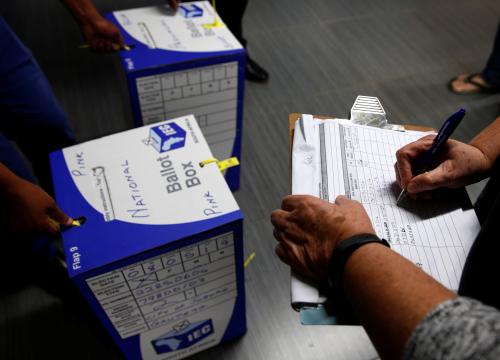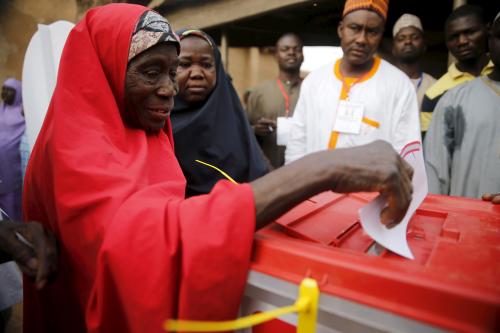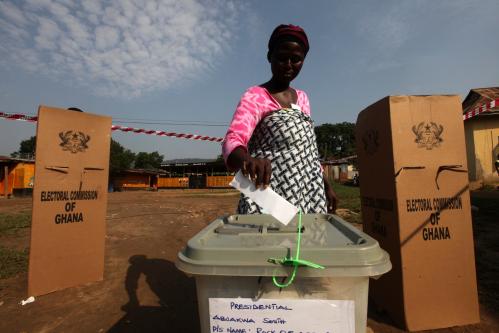Zimbabwe announces plans for privatization of state-owned enterprises
On Wednesday, January 3, Zimbabwe announced plans to reduce its stake in up to eight state-owned enterprises, including the national airline, power utility, and railways operator. The eight firms are all making losses. In the announcement, Deputy Finance Minister Terence Mukupe said that “diluting our shareholding in those entities and our shareholding might go to zero in some entities.” Zimbabwe partially or fully owns 92 companies most of which are loss making because of years of mismanagement, old equipment, and high operating costs. According to a government report released last October, 38 state-owned enterprises lost $270 million combined in 2016.
The privatization efforts are happening as the new government tries to narrow its budget deficit and revive the economy. The budget deficit was 11.2 percent of GDP in 2017, four times higher than targeted with more than 90 percent of government expenses consumed by civil servant salaries. Other recent measures to reduce budget deficits include the government requiring all civil servants over 65 to retire and the closure of some foreign diplomatic posts.
Liberia elects George Weah while Uganda eliminates presidential age limits
Liberia’s presidential election concluded last week with a victory for George Weah, a former international soccer star and senator. He beat out current Vice President Joseph Boakai for the role, garnering 62 percent of the vote in a run-off election with 56 percent voter turnout. Although the run-off was originally scheduled for November 7, 2017, a legal challenge claiming “massive fraud and irregularities” delayed the vote to last week. The Liberian Supreme Court reviewed the claim, but ultimately did not find enough evidence of fraud to support a re-run.
President-elect Weah indicated in his first interview since winning the election that his presidency would focus on boosting agriculture and exports, stating, “I want for us to be self-sustained so we can export,” and, “The government has a responsibility to have agricultural programs so people are able to grow their own food.” His inauguration is scheduled for January 22, 2018.
Meanwhile, in Uganda, President Yoweri Museveni signed the controversial new “life presidency” legislation into law this week, which removes the age limit of 75 on presidential candidates, enabling Museveni to run for office again, further extending his 30-year rule. Opposition members such as former Forum for Democratic Change president and presidential candidate, Dr. Kizza Besigye, have called the law a subversion of the will of the people.
Ethiopia announces the release of some political prisoners
On Wednesday, Ethiopian Prime Minister Hailemariam Desalegn announced the closing of a prison notorious for human rights violations to turn it into a museum and the release of political prisoners. The announcement on the planned closing of the Maekelawi detention center was met with praise from much of the international community.
As for the prisoners, Prime Minister Desalegn stated, “Politicians currently under prosecution and those previously sentenced will either have their cases annulled or be pardoned.” This decision is a move to open political dialogue in the country, according to the administration. Wednesday’s announcement was warmly welcomed by many, including Amnesty International, which stated, “Today’s announcement could signal the end of an era of bloody repression in Ethiopia. For prisoners who have spent years incarcerated on politically motivated and trumped-up charges, this is long overdue.”
In recent years, the East African country has faced intense criticism from human rights groups for its crackdown on political opponents and growing protests. According to the BBC, about 1,000 prisoners are being held under the country’s anti-terrorism laws, which critics say is used to suppress dissent. Though other experts argue that “tens of thousands” are locked up under what could be called political reasons.
However, on Thursday, human rights groups and the political opposition were forced to roll back their expectations: According to the BBC, an error in translation created the misquotation that all political prisoners would be freed, though the government’s policy is that only some will be pardoned.




Commentary
Africa in the news: Zimbabwe’s privatization efforts, Liberia and Uganda presidential updates, and Ethiopia’s prisoner announcement
January 5, 2018